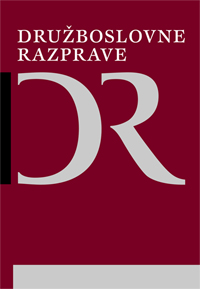Neformalni viri vpliva v EU: trda in mehka znanja ter učinkovitost slovenske državne uprave v času predsedovanja Svetu EU
Informal sources of influence in the EU: hard knowledge, soft skills and efficiency of the Slovenian civil service during its EU »Presidency«
Author(s): Sabina Kajnč, Marjan SvetličičSubject(s): Social Sciences
Published by: Slovensko sociološko društvo (in FDV)
Keywords: Slovenia; EU; presidency; competencies; knowledge; small states
Summary/Abstract: The objective of the article is to find out whether Slovenia as the presiding EU state in the first half of 2008 and its diplomatic elite and experts were ‘equipped’ with adequate competencies to materialise its soft sources of influence, sources that the small countries theory says small countries possess. The analysis is based on a survey of over 600 civil servants involved in Slovenia’s 2008 EU Council Presidency. The survey demonstrated that the respondents did not find ‘hard’ knowledge to be a limiting factor but attributed greater importance to ‘soft’ skills. According to – the admittedly subjective assessment of Slovenian civil servants – Slovenia’s public administration does not successfully exploit its smallness, which should in fact enable greater efficiency, as it is beset with problems involving intra- and inter-ministerial co-ordination along with a hierarchical culture which primarily influence the (lack of) information flows and a low level of informal contacts between civil servants.
Journal: Družboslovne razprave
- Issue Year: 25/2009
- Issue No: 061
- Page Range: 59-79
- Page Count: 21
- Language: Slovenian

